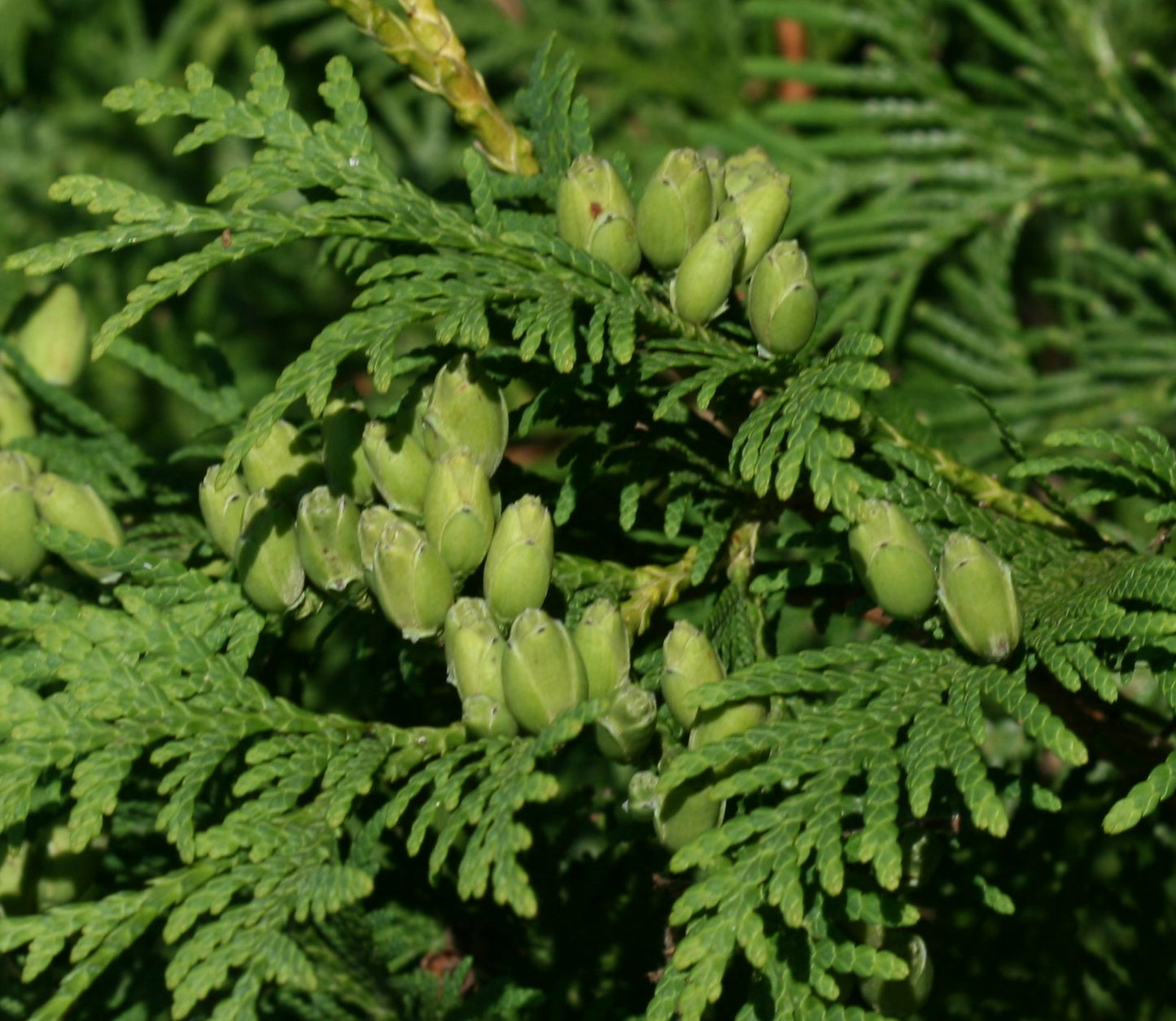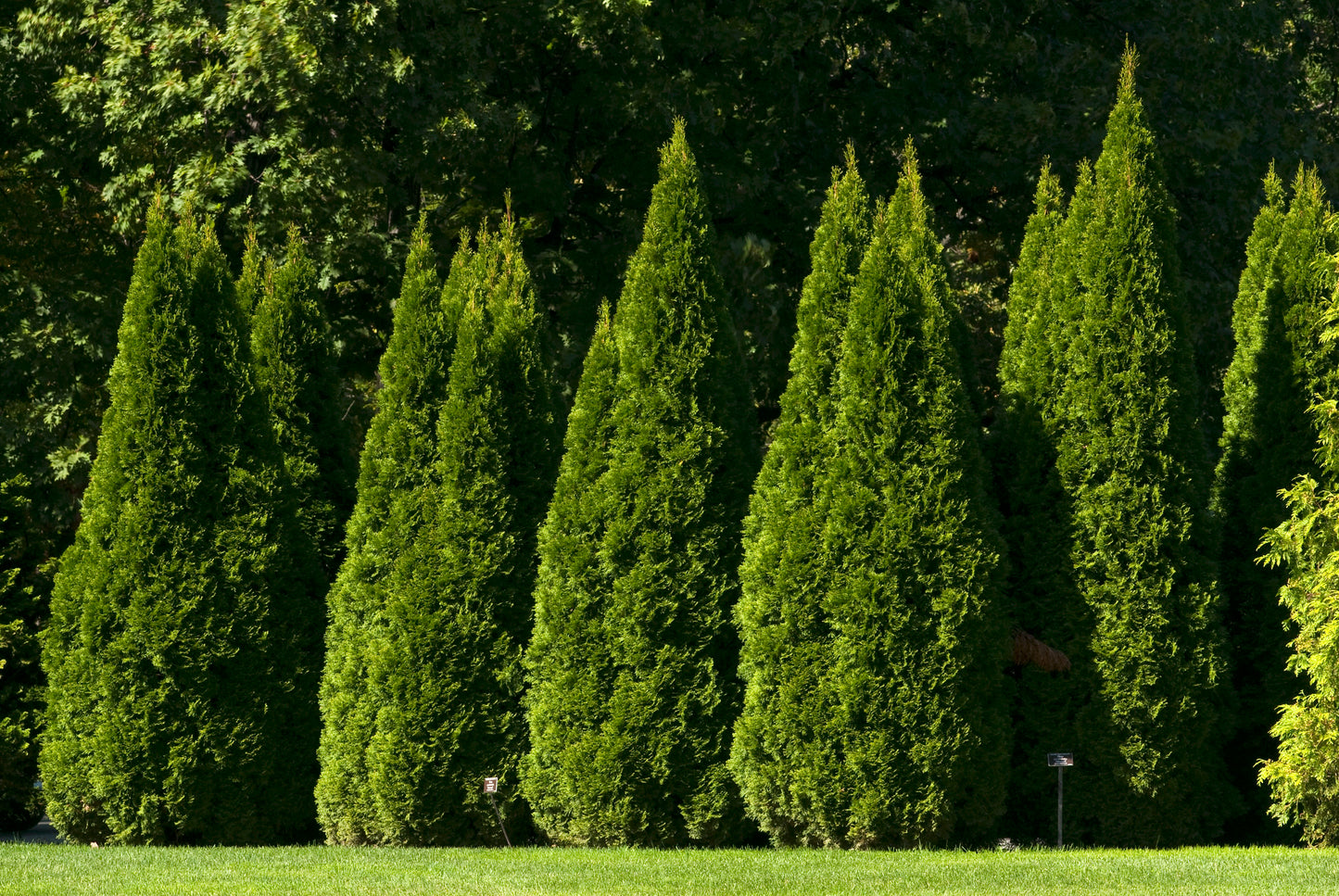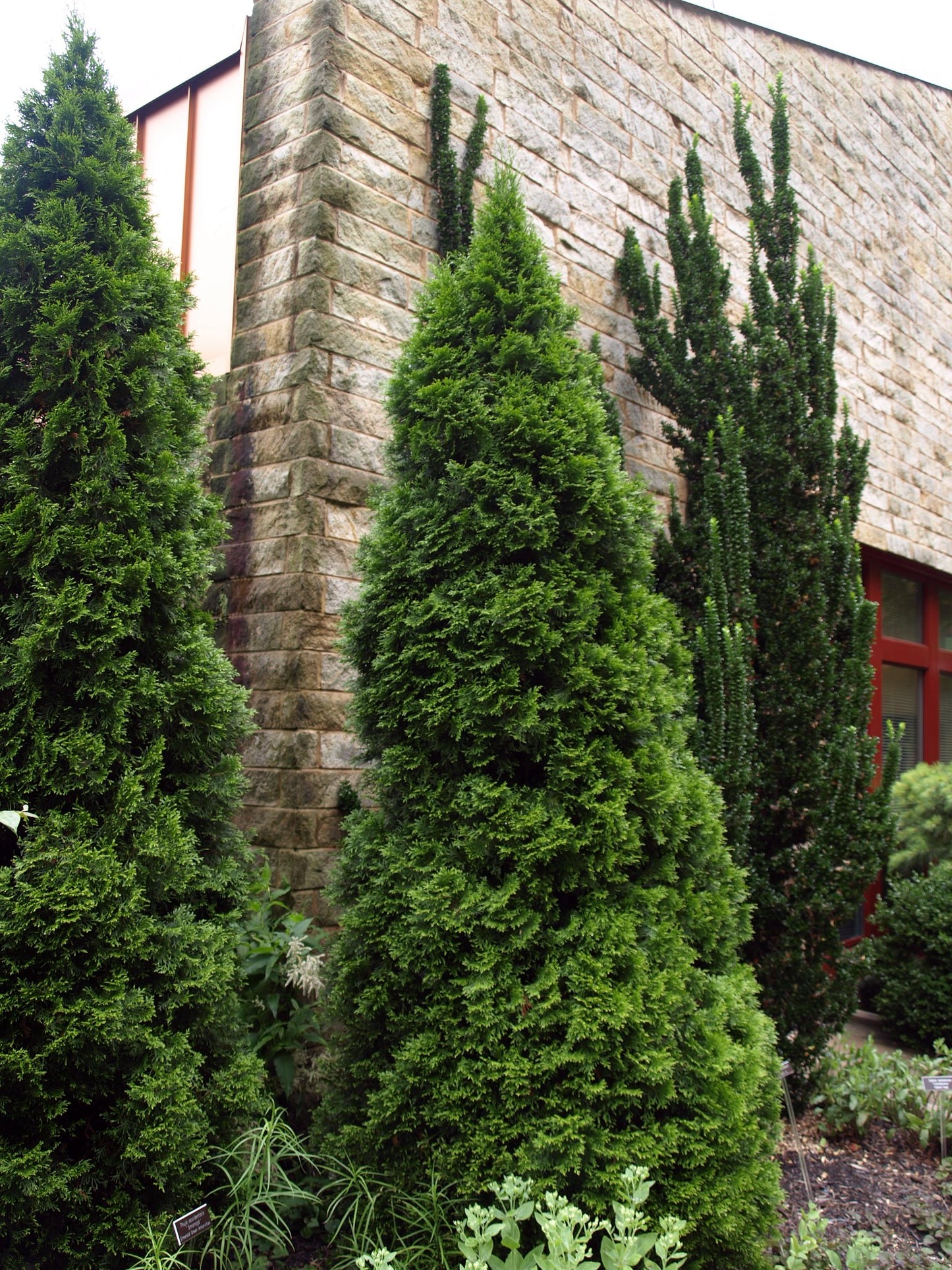Floridaseeds
Northern White Cedar Arborvitae Thuja occidentalis 100 Seeds USA Company
Northern White Cedar Arborvitae Thuja occidentalis 100 Seeds USA Company
Couldn't load pickup availability
Thuja occidentalis, commonly known as American arborvitae, Eastern arborvitae, Eastern white cedar or Northern white cedar, is a dense, conical to narrow-pyramidal (sometimes maturing to broad-pyramidal), often single-trunked, evergreen tree that is native to eastern and central Canada south to northern Illinois, Ohio and New York with scattered populations further south in the Appalachians to North Carolina. Mature trees may reach 40-60' tall in the wild over time, but in cultivation typically grow much smaller to 20-30' tall. Scale-like, aromatic, yellow-green to green foliage appears in flattened sprays. Red-brown bark will exfoliate on mature branches and trunks. The common name of arborvitae (tree of life) comes from early French settlers to North America who learned from Native Americans that the tree’s foliage could be used to treat scurvy.
Grow in average, medium moisture, well-drained soils in full sun to part shade. Somewhat wide range of soil tolerance, but prefers moist, neutral to alkaline, well-drained loams. Intolerant of dry conditions. Best in full sun, but generally appreciates some light afternoon shade in hot summer climates. Avoid full shade where foliage density will substantially decrease. Avoid exposed, windy sites. Garden Uses. Foundations and landscapes. A very large number of compact to dwarf cultivars of this plant have become very popular. Hardy in zones 2-7.
Growing Instructions
The seeds have a period of dormancy. They can be planted outdoors in the fall or winter for spring germination or they can be cold stratified to simulate winter conditions and to break their dormancy at any time of the year.
- Soak the seeds in water for 24 hours.
- Put the mixture in a ziplock bag.
- Put the bag in the refrigerator and leave it there for 8 weeks.
- Fill a container with a good quality potting compost.
- Sow the seeds on the soil.
- Cover the seeds with a layer of soil a couple of millimeters thick.
- Water the soil so that it is moist but not wet. The seeds begin to germinate several weeks after they are sowed.
- When the seedlings are a few inches tall, they can be transplanted.
Materials
Materials
Shipping & Returns
Shipping & Returns
Dimensions
Dimensions
Care Instructions
Care Instructions
Share








